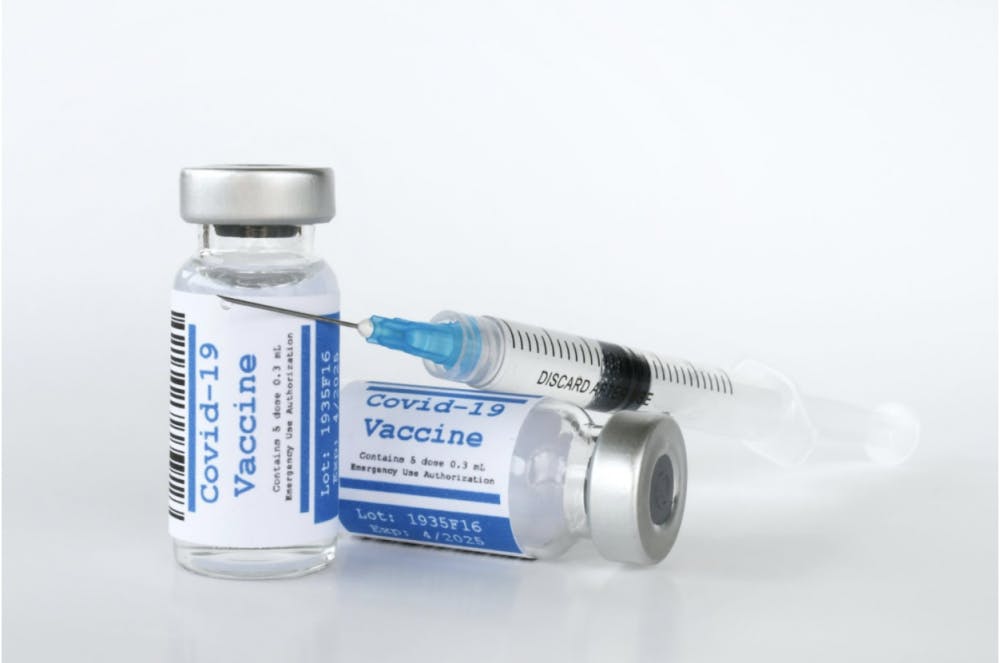By Anthony Garcia
News Editor
As of Monday, April 12, administration of the Johnson and Johnson (J&J) one-shot adenovirus vaccine used to prevent Covid-19 has been halted in the U.S. after six women experienced blood clots. One woman has died and another is in critical condition, according to The New York Times.
After 6.8 million J&J vaccines have been administered, the CDC and FDA are stepping in to determine if the rare blood clots are linked to the vaccine.
A cerebral venous sinus thrombosis, a type of rare blood clot, has been seen in all six cases that occured in women between the ages of 18 and 48, six to 13 days after the vaccination, according to the CDC and FDA joint statement.
Earlier this month, a warning about the possibility of blood clots due to a similar European one-shot vaccine, AstraZeneca, was released. However, administration of the vaccine was not halted despite the AstraZeneca vaccine being linked to rare blood clots in the brain, according to the European Medicines Agency (EMA).
Out of 38 million people vaccinated with the AstraZeneca shot, 164 have suffered clotting. However, the EMA has not ceased to administer the vaccine because of their assessment of the risk versus reward factor and to avoid “vaccination hesitancy” according to EU Commissioner for Health Stella Kyriakides. Instead, after an advisory for those under 60 took place, the EMA has moved into the direction of targeting an age group less likely to experience adverse effects from the vaccine.
Comparably, the J&J vaccine was halted after it was found to give six out of 6.8 million people vaccinated a blood clot.
The central question facing the FDA was if the risk of losing one life is more valuable than the reward of getting nearly 7 million vaccinated. But before any other lives were lost, the country decided to pause the vaccine to get a grasp on the situation. This decision, compared to the EU reaction, was made swiftly.

“Unfortunately, there are risks when it comes to most medications. It's just a shame that this is fueling a lot of fear, and probably encouraging a lot of folks to reconsider scheduling an appointment,” said Alex Raskin, a senior journalism major.
Amongst the notion of vaccine hesitancy is side effects. Many side effects have been present in all three of the possible vaccines. According to students at the College, the vaccine options have been presenting a number of side effects including headaches, pain at the site of vaccination, fatigue and soreness.
“I received the J&J vaccine. I won't lie, I felt pretty rough the day I got the shot,” said Dave Roberts, a sophomore political science major who explained that he experienced muscle aches and chills.
When The Signal asked students in an Instagram poll if they would willingly get the J&J vaccine if it was currently available, many students are willing to take the chance.
“The clots don't worry me at all as a long time birth control user, and the chances of getting them are so low. I’m more worried about the fact that the findings would cause people to fear the vaccines and refuse to get them,” said Alejandra Cruz, a senior mechanical engineering major who received the J&J vaccine.
Now that information has been released regarding the J&J vaccine, many are worried that it will be met with hesitation should the vaccine become available again because of the blood clot scare in addition to their already damaged reputation, regarding a 2020 lawsuit where a Johnson and Johnson baby powder product was linked to cancer.
Since the J&J vaccine's effectiveness is at least 20% less than that of Pfizer and Moderna, the risk of blood clots is a deal breaker for many who are already skeptical about getting the shot.
“I also feel like the J&J vaccine isn't effective only 64% and now it's causing blood clots which is so scary,” said Anvi Sonarikar, a sophomore biology major.
However, sophomore special education/elementary education major Lauren Jackapino would get the J&J vaccine if it was available, saying “getting Covid is more risky than this side effect.”
Cruz, who received the J&J vaccine, is confident in the science despite explaining short-lasting side effects of a fever and achiness.
“I do believe the shot was effective,” she said, “I got lucky in getting the vaccine.”
The U.S. decision to act quickly to prevent possible cases of blood clots, compared to the EU who never halted administration, will undoubtedly cause many to avoid vaccination due to existing distortion of the credibility of science during the pandemic.
In addition, the unavailability of the shot is a disadvantage for millions waiting to get vaccinated, and will lead many to worry about their chances to get vaccinated as soon as possible.
“I understand the anxiety behind getting a vaccine, but I highly recommend that every student that has the ability to get a vaccine should get one,” said senior communications major Dylan Lembo.
If students want to be vaccinated but have questions about how to make an appointment, below are links to other articles at The Signal that can help:
A step by step guide to getting your Covid-19 vaccine
Student Health Services addressed Covid-19 vaccine questions







